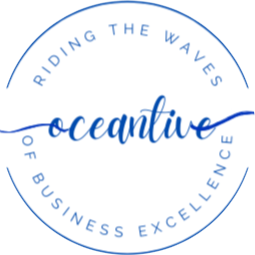Coaching Mastery
Inspire and Elevate
-
By the end of the "Mastering the Art of Coaching and Mentoring" course, participants should be able to:
Distinguish between coaching and mentoring, and understand the key differences and applications
Recognize the benefits of adopting a coaching mindset and approach
Identify and overcome negative belief cycles that hinder personal and professional growth
Apply the Circle of Control, Influence, and Concern model to increase personal effectiveness
Demonstrate proficiency in core coaching skills, such as active listening, powerful questioning, and providing effective feedback
Implement the GROW and OSCAR coaching models to structure effective coaching conversations
Leverage the Pleasure and Pain Theory of Motivation to inspire action and change
Utilize different coaching approaches to address various performance scenarios
Apply the Performance Wheel to raise awareness and maximize individual and team performance
Effectively apply coaching techniques to real-world issues and challenges
Build trust and rapport with coachees to establish effective coaching relationships
Adapt their coaching approach based on the coachee's awareness and readiness for change
Understand the role of Transactional Analysis in coaching interactions
Employ coaching to help individuals and teams navigate change and foster a culture of continuous improvement
Identify and address the challenges that managers and HR practitioners face when implementing a coaching approach
-
Module 1: Introduction to Coaching and Mentoring
Definitions, philosophies, and key differences between coaching and mentoring
Benefits of adopting a coaching approach
Understanding belief cycles and breaking negative belief cycles
Circle of Control, Influence, and Concern
Module 2: Coaching Skills, Models, and Techniques
Essential skills for effective coaching
The GROW Model
The OSCAR Coaching Model
Effective coaching questions
Pleasure and Pain Theory of Motivation
Module 3: Coaching for Performance
Different coaching approaches
Using the Performance Wheel to raise awareness and maximize performance
Module 4: Building Effective Coaching Relationships
Effective coaching questions to raise awareness and responsibility
Enhancing listening skills
Giving and receiving feedback
The role of Transactional Analysis
Increasing emotional intelligence and personal effectiveness
Using a coaching style of management
Understanding the differences between coaching an aware and unaware coachee
Module 5: Coaching and Continuous Improvement
Using coaching to manage, improve, and maximize performance
Coaching to help people move through change
Introducing the new Change Culture
Enabling a coaching and continuous improvement culture
Addressing Challenges for Managers and when it’s time to end coaching


